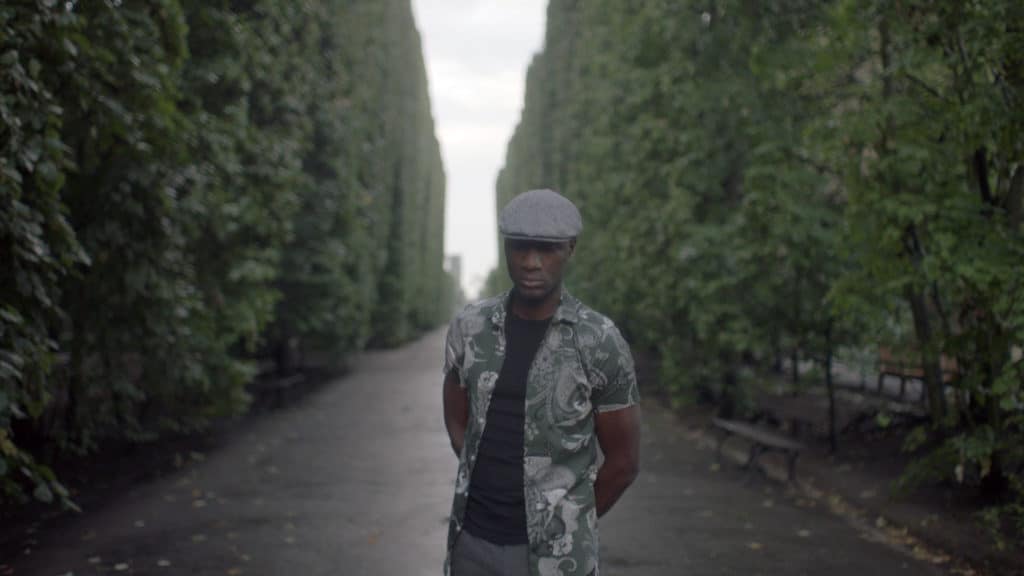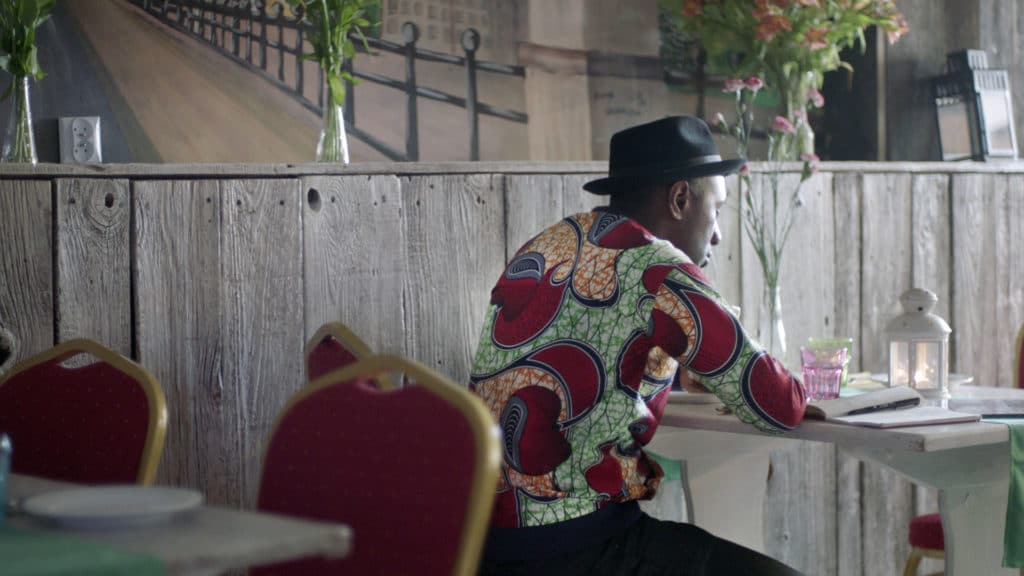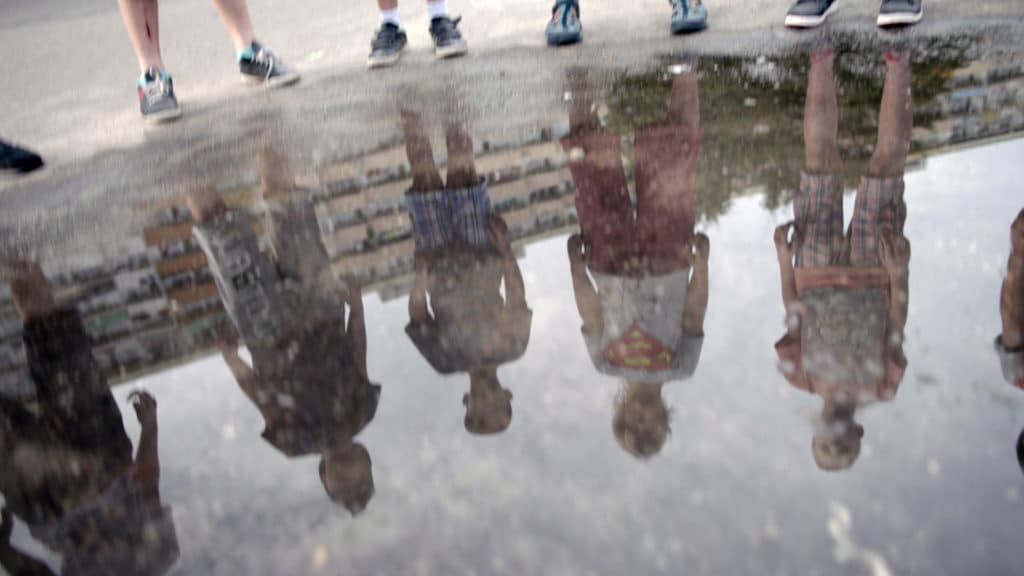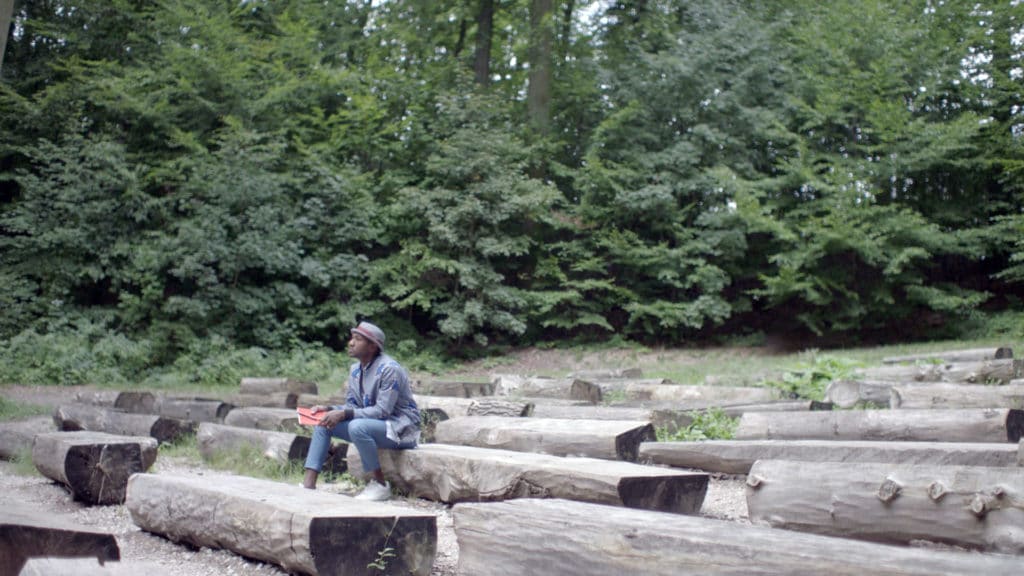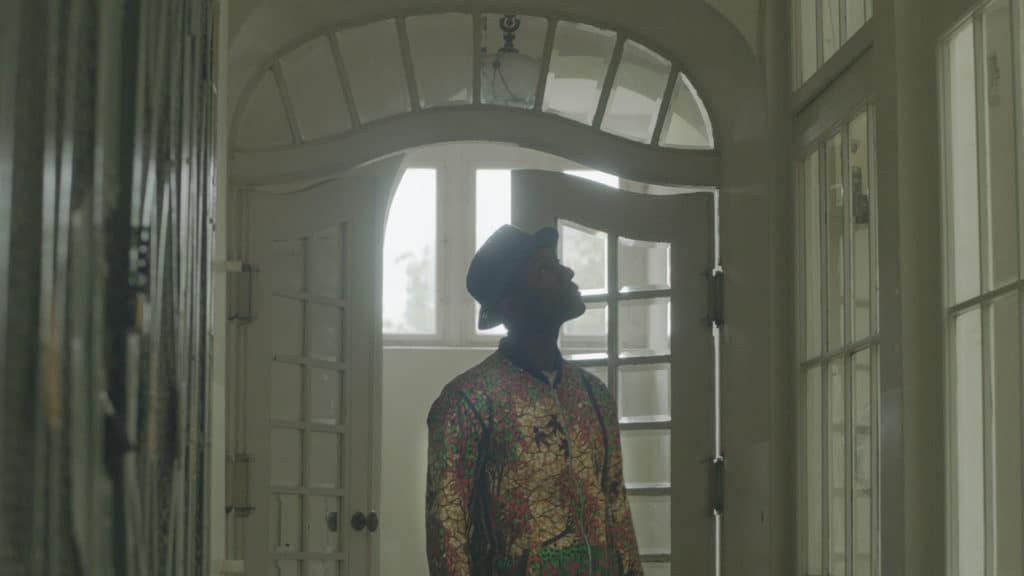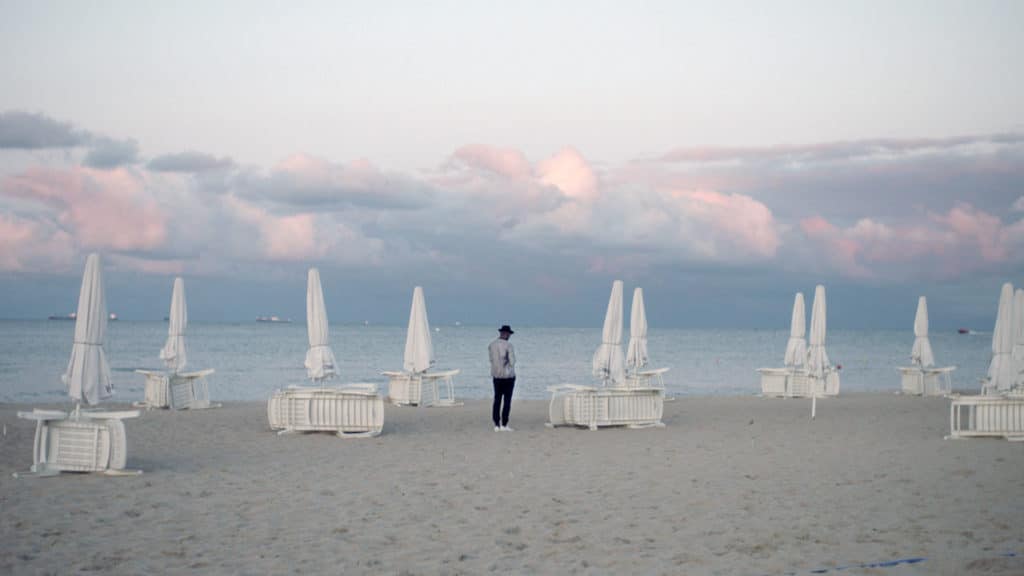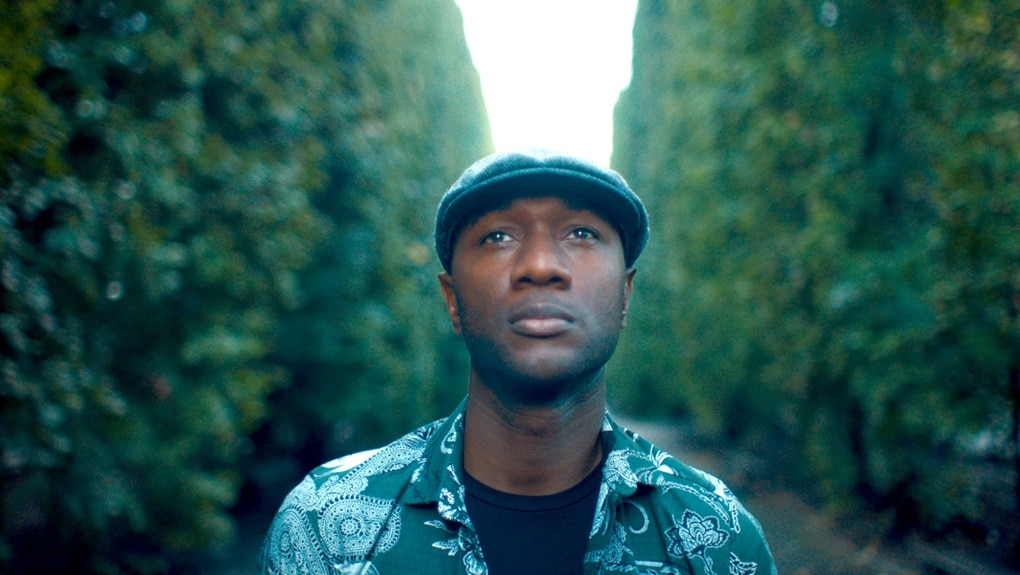Aloe Blacc recently returned from the Sopot Music Festival in Poland. But to hear the acclaimed songwriter and activist tell it, he also recently returned from another time period.
“For me, it was like kind of stepping into the past because there’s still a lot of development that’s happening [there], and folks are stepping into the new era. I was talking to people about music, which is obviously my world. Sixty percent of the sales are in CDs, which is interesting,” he says of his travels to Poland as part of the Marriott StoryBooked documentary series, where he stayed at the Sopot Marriott Resort and Spa.
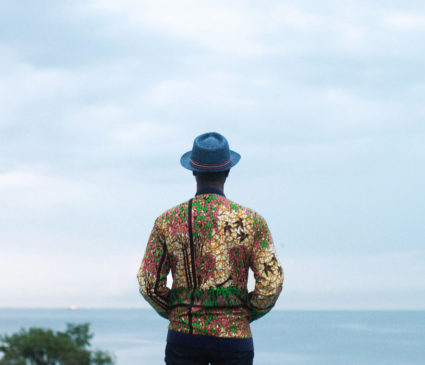
“I saw a lot of these big housing constructions where thousands of people lived in the same building, and each building had a number or a letter, remnants of the Cold War and communism.”
Aloe Blacc is never in one place for long, either musically or, increasingly these days, physically. If he and his wife, the musician Maya Jupiter, aren’t going back to Australia to see his family, he’s probably heading out on tour or en route to play a music festival. He travels so often that he even started writing what would become his biggest hit, the Avicii collaboration “Wake Me Up,” while on an airplane.
Born Egbert Nathaniel Dawkins III in Laguna Hills, California, he’s familiar with transition. His parents were originally from Panama, and he went back to visit Central America often. Even at a young age, he had already seen more of the world than his classmates had and had begun to consider his place in it.
“I have pretty amazing memories of being at my dad’s family home, with dirt roads and stucco and brick houses with pink rooftops and chickens in the field, ant hills and fruit trees everywhere,” he says. “It was pretty awesome as a kid to be able to run around in that kind of environment. It was a lot different from the suburbs of southern California.”
Though he says he didn’t see his parents struggle to acclimate to a new country firsthand, as he got older, he began to understand both their journey and what they did to help others.
“My parents were helping out a lot of my cousins, aunts, uncles and family friends who did struggle in making the transition,” he says, “and getting caught up in signing up for credit cards but not understanding what they’re really signing up for and having to be bailed out, and then some people not getting their papers while some people did get their papers.”
That experience stayed with him, and he’s always trying to find ways to shine a light on the immigrant experience and help people from developing regions. For his solo video for “Wake Me Up,” he worked with the immigrant rights group National Day Laborer Organizing Network and the ABC Foundation’s Healing Power of Music Initiative to cast immigrant activists in the popular clip.
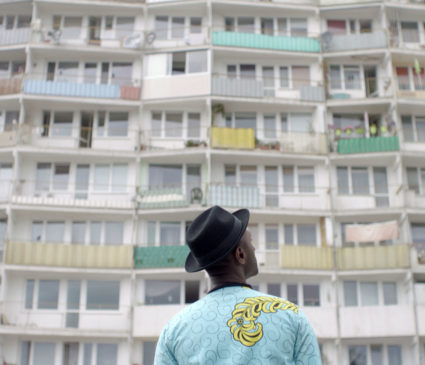
“I think working with nonprofit organizations to magnify their messages in my music videos is the way that I make good on my promise to create positive social transformation with my music,” he says.
“I, of course, have a relationship with the story of immigration, so I wanted to speak to that. It was such a popular song that I think gave a lot of visibility to the dreamers who had been awarded the opportunity to go to school in the U.S. and try to become part of the social fabric as [citizens], but also the day laborers who tell the story of humanity.”
He also works with the organization Malaria No More, which seeks to make mosquito nets more widely available in order to decrease malaria-based deaths.
“Malaria doesn’t have to kill anyone. It can be avoided. So if there’s enough medicine, if there’s enough cultural practice around using the insecticidal nets when you sleep, then it can completely transform that statistic to zero deaths,” he says. “The job that I have is really just around awareness. So when I wrote the song ‘Live My Life,’ I teamed up with Malaria No More to create a music video that spoke about the proper use of insecticidal nets and distribution.”
I figured I’d just focus on music until I found another job, and I never had to look back.
ALOE BLACC
He’s happy for the opportunity to both see and help the world, but he admits it wasn’t the original plan. He attended the University of Southern California, majoring in linguistics and psychology, and just made music as a hobby. His original goal was to be an entrepreneur.
But then fate, or at least the economic downturn of the early ’00s, intervened. “I was working in corporate America, and I got laid off, and I figured I’d just focus on music until I found another job, and I never had to look back. Everything kind of worked out.”
TRUST THE PROCESS
The future reveals itself
After a handful of early EPs and releases with Emanon, a duo he formed with the record producer Exile, in 2006 Blacc released his proper solo debut “Shine Through” via the respected independent hip-hop label Stones Throw Records. It was a thoroughly modern collection of forward-thinking, politically conscious hip-hop, featuring production from underground legends such as Oh No and Madlib, but it also featured a healthy influence of old-school soul and rhythm and blues reminiscent of Al Green and Sam Cooke.
Always one to ignore borders, Blacc has made everything from EDM bangers to head-nodding hip-hop and jazzy funk to acoustic ballads, and he’s covered everyone from Pearl Jam and the Police to Bill Withers and has collaborated with producers as varied as Pharrell, Owl City and Tiësto.
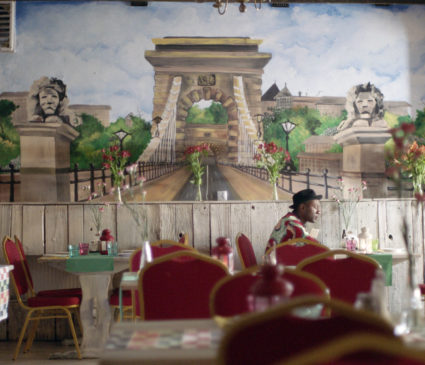
“I would credit my diverse taste to being a hip-hop artist and learning through the music that I sampled,” he says of his career. “I’ve sampled so many different genres that they’ve all become a part of the sound and style that I create.”
It was that genreless approach that gave birth to his breakout hit “I Need A Dollar,” which appeared on his 2010 album “Good Things.” “It was mainly inspired by listening to some field recordings of chain gang workers who were creating their own extemporaneous folk songs of their own personal blues or issues that they’d gone through,” he says.
A striking, fresh combination of timeless soul and crisp hip-hop beats, it became a cult hit in America, especially after becoming the theme song for the HBO series “How To Make It in America,” though American radio refused to play it.
I’ve sampled so many different genres that they’ve all become a part of the sound and style that I create.
ALOE BLACC
“The radio stations here were scared that people would think that they were listening to the wrong station, so they would change the channel, which is obviously not the truth,” he says. Fortunately, European stations didn’t have the same hangups, and it became a huge hit overseas.
After a few early, no-budget tours, which he remembers as “10 guys in a rented van sleeping on the floor in hotel rooms,” he was playing gigantic festivals such as Glastonbury.
“Whenever artists ask me how did I do it, I’m like, ‘You should focus on Europe because you’ll have a career forever because the audience there is not as fickle as the U.S., and you also have the opportunity to just come home to the U.S. and relax and not have to worry about tabloids chasing you.’”
Though he appreciates that his success allows him to use his name to help the charities that are important to him, ultimately, he says, “I keep a super-low profile. I try to put the music first, let the music speak for itself. It’s all about the music. It’s all about the activism and the organizations that I’m supporting, not so much about me.”
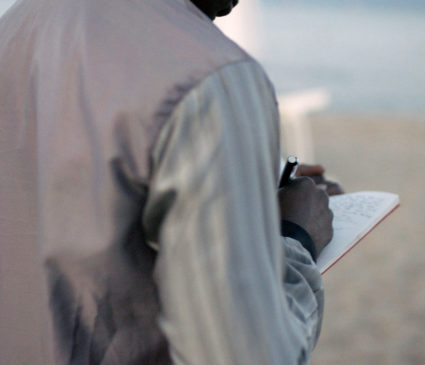
His travel routines have changed since he started a family. While he once killed time on planes writing and watching movies, these days,“It’s become much more of a strategic operation,” he says.
“Now, with kids, there’s so much going on. We bring puzzles on the airplane, but it’s tough because you lose pieces in the seats. So I’m either playing with the kids or I’m sleeping because with kids, there’s really no time to waste watching movies on airplanes.”
But while he admits some aspects of traveling have changed, he still loves to do it as much as possible.
Discovering the world, he says, has helped him discover who he is as an artist, an activist and a person.
“It’s just the act of being mobile that helps to jog my creative juices. I think I hear a lot of different sounds, and they influence the production styles that I like to use. I think that being out and seeing different performers and different environments [is] inspiring and in some ways influences the music that I make,” he says.
“As human beings, we’re a migratory species. Almost every animal is. Government and society create new rules for how humans are supposed to act, but there’s an urge in all of us to travel and to settle in different places.”
